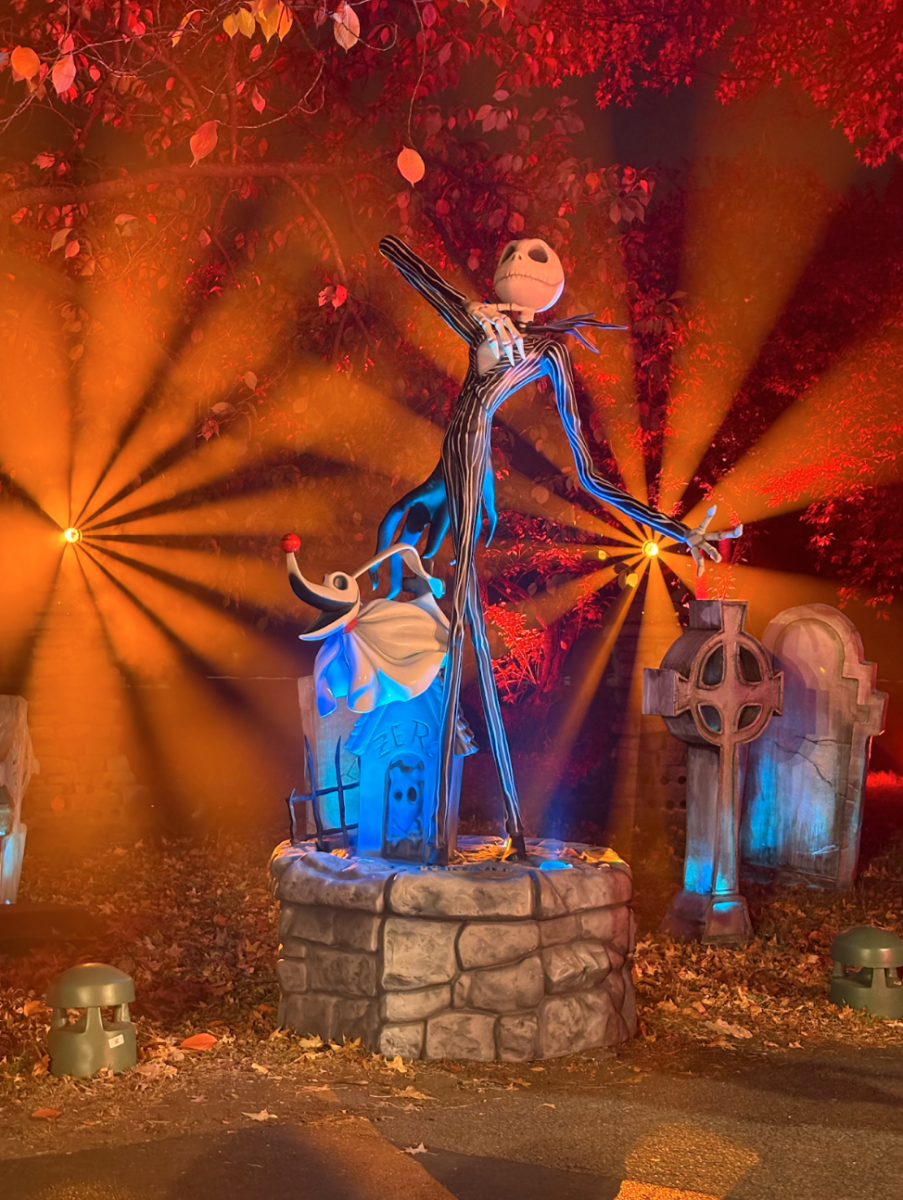By Briana Scalia

There is only one word that perfectly encapsulates the plot of the new Netflix original series, “Lemony Snicket’s A Series of Unfortunate Events,” and it is “unfortunate.” However, no viewer can say they were tricked into watching the show based off its bright color palette and campy humor, as Lemony Snicket himself begins every episode discouraging anyone from watching the show. The show pays the books a great amount of adulation, not only sticking closely to the source material, but also breathing life into the characters of the Baudelaire children, Klaus, Violet and Sunny; and the villain, Count Olaf.
One major complaint about the Netflix show is that it is rather depressing, which many critics seem to think contradicts the set and costume design of the show. Similar to the novels, the show does an excellent job of keeping the audience confused as to which time period the show is set. Due to this seemingly “alternate” timeline of Snicket’s, most of the clothes and sets on the show have a bright and colorful appeal to them, and are all highly stylized.
While the show appears to be a sweet and child-friendly comedy, it instead features dark and often macabre themes. Mirroring the books, though the villains of the show are often portrayed in a silly and theatrical light, the scenes presents a very real danger to the main characters of the show, the Baudelaire children. The show can be disturbing, dealing with the highly mature themes of loss and pain.
Speaking of Lemony Snicket, the narrator and pseudonymous author of the original novels is expertly played by Patrick Warburton, who often toes the line between deadpan and dark humor. While he speaks of the Baudelaire children with a sense of detachment, viewers can tell that he is truly invested in their well-being. Like his book counterpart, Snicket interrupts the narrative to provide his own perspective on the current situation quite often, but it is never an unwelcome addition to the episode.
The next major role is the children’s distant relative Count Olaf, who is played with both a hysterical and threatening treatment by Neil Patrick Harris. It is amazing to see Harris play a character who is attempting to disguise himself throughout the show, albeit poorly.
The Baudelaire children, Klaus (Louis Hynes), Violet (Malina Weissman),and infant Sunny (Presley Smith), also do a wonderful job of making their characters feel both whimsical and sympathetic in their plight, while still expressing the realistic maturity levels of children.
At one point, after their third new home falls to some “unfortunate events,” Violet reminds her younger brother that he should not complain about their new living situation, to which he simply responds, “I know…I want to complain anyway.” This is not only incredibly relatable, but reminds the audience that despite how mature these children may seem, they are ultimately still children.
I cannot give this show enough praise. The actors do a fantastic job of portraying their characters, the set and costume design is refreshingly cheerful, yet the plot and undertones of the show are incredibly thought provoking and mature.
Snicket did a marvelous job in both the book and the show in expressing how frustrating it can be for children when their concerns are not addressed simply because of their age.
I say Snicket because not only did Lemony Snicket write the novels, but Daniel Handler, the author’s real name, penned the show’s screenplay. While the first episode errs on the side of spectacle and less on the side of tragic, I highly recommend finishing this show.






































































































































































































